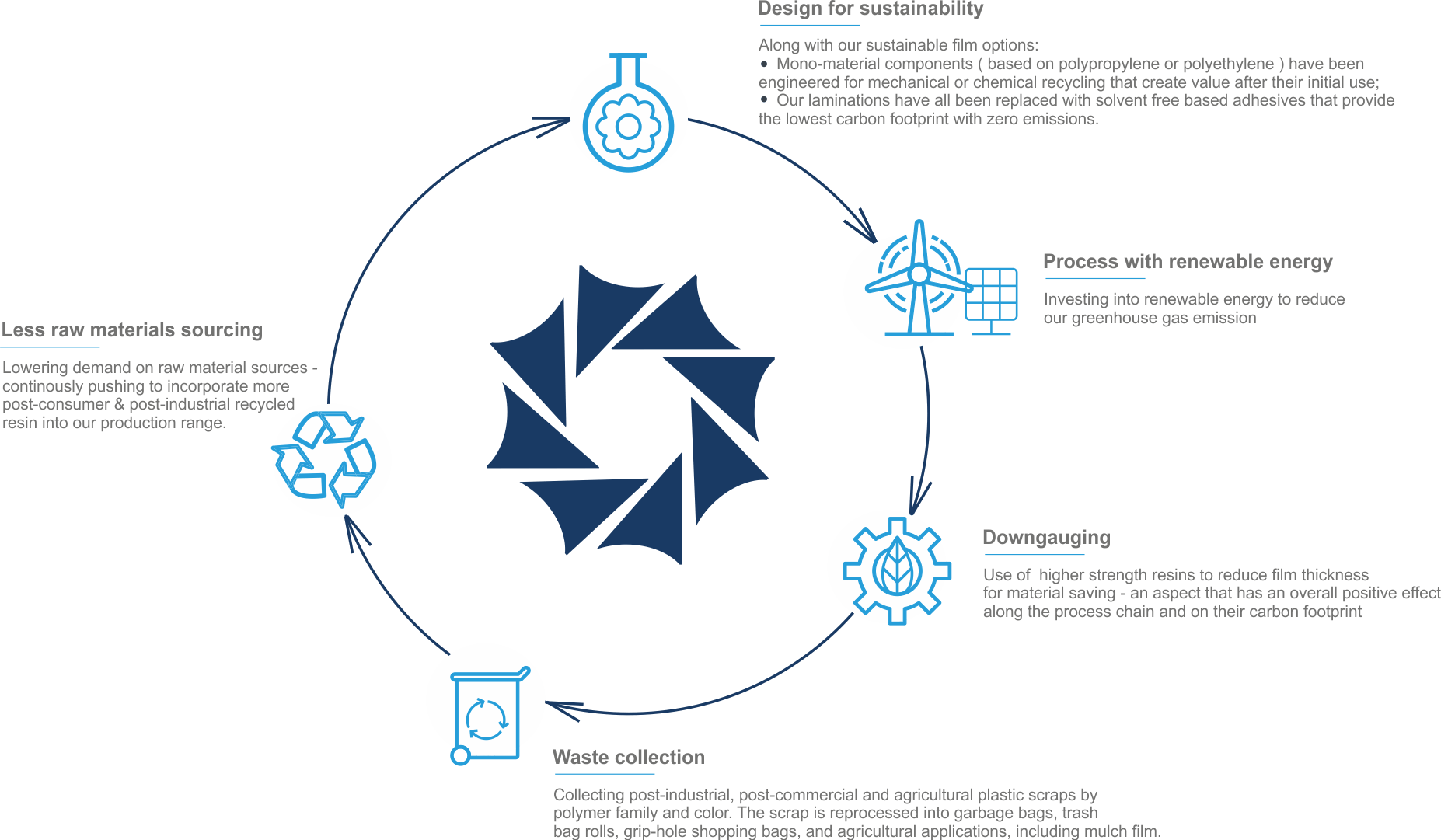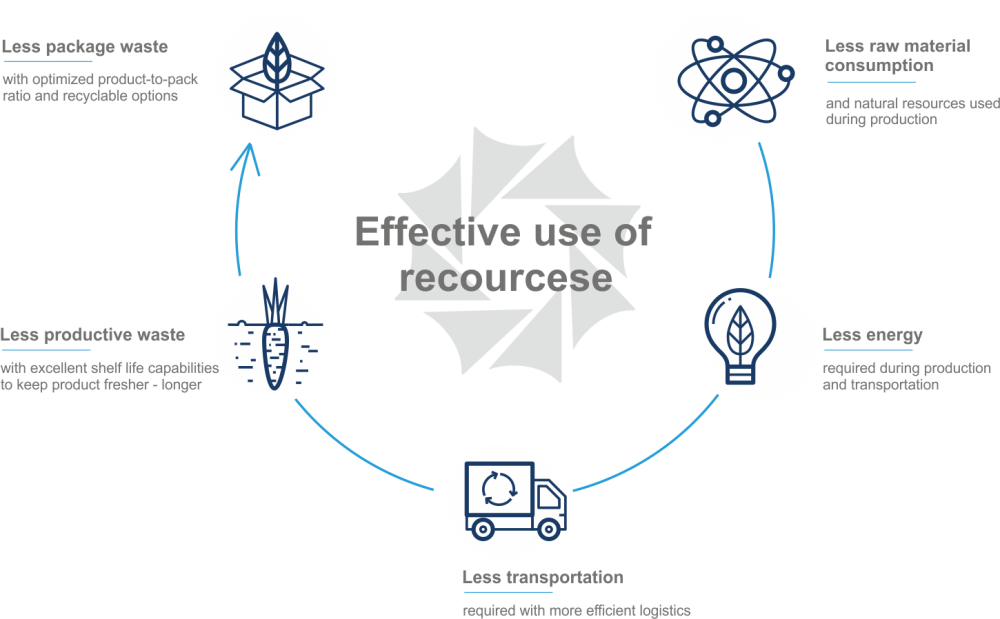Sustainability
Sustainable approach to plastics
Arguably one of the biggest changes – and challenges – in recent years has been the global demand for more sustainable practices in plastics manufacturing.
We strongly believe in the benefits of a Circular Economy to protect our environment by recycling, reusing, and reducing packaging. It is about enhancing the performance and recyclability of packaging to build a cleaner future for future generations.
Sustainable practices
We reTHINK packaging towards circularity to make a positive, sustainable and
meaningful contribution to our customers and the environment

Sustainable attributes
Whether in our operations or along our supply chain, our sustainability agenda
works to create sustainable value for our customers and the environment
RECYCLABLE
Recyclable means that the packaging can be collected, sorted, reprocessed, and ultimately reused in manufacturing or making another item.
RECYCLED CONTENT
Recycled content refers to a package composed totally or partially of recycled material. The material can be derived from two sources: Post-consumer or post-industrial.
LIGHTWEIGHTING
Optimized packaging that fulfils the required function with the least amount of material use
BIOMATERIAL
Materials derived from renewable sources such as corn sugar cane, or trees
REUSABLE
Optimized packaging that fulfils the required function with the least amount of material use
Sustainable development goals
At Balproma, we want to contribute to more sustainable future for our planet and are working to do more to support the delivery UN’s Sustainable Development Goals. Presently, we have focused our effort on specific goals that most closely align with our current business strategy and purpose.
Why choose Flexible packaging?


